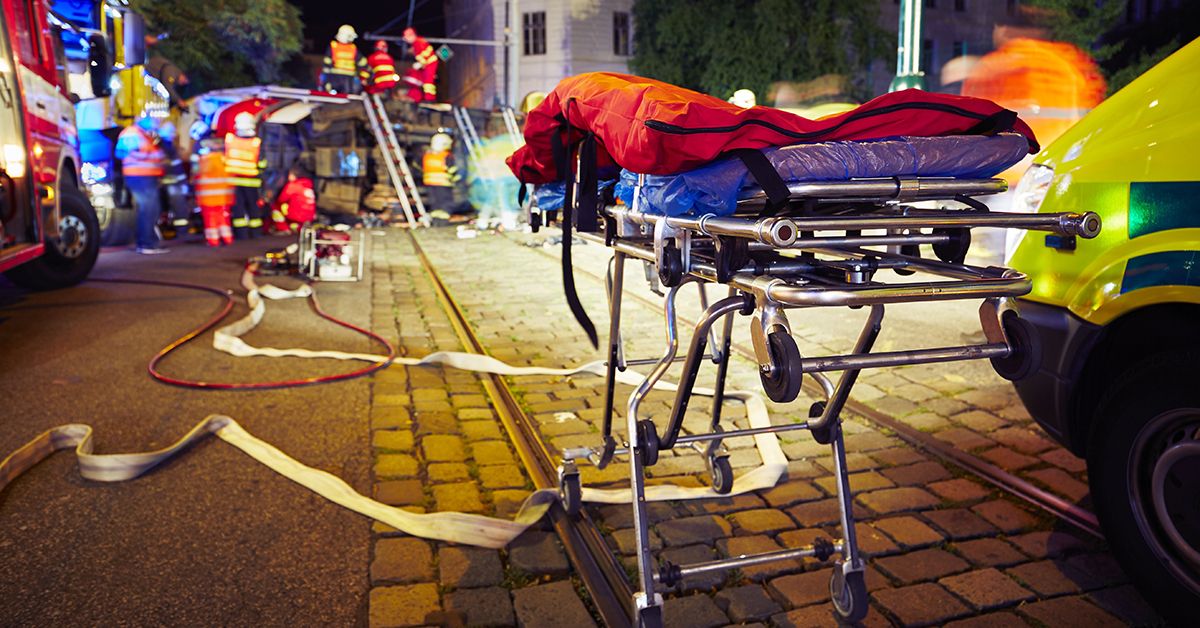
Were you recently in a car crash? Did you suffer injuries? Spend time at a doctor’s office, in a hospital, or away from work?
If so, you probably have a lot of questions. You might wonder how common your type of injury is, and whether it entitles you to claim financial compensation from the at-fault driver or their insurance company.
Right now, you might not even be sure if you have “the right type of injury” for making a claim or taking legal action.
Often, accident victims tell themselves that their injury is minor, or that their pain and other symptoms will simply “go away on their own.”
It’s important to understand, however, that symptoms of a car crash injury aren’t always obvious right away. In fact, it is very common for pain and other symptoms to seem relatively minor at first — and then get worse with time.
Things like shooting pains, headaches, soreness, stiff neck, reduced range of motion, difficulty concentrating, fatigue… all of these seemingly “vague” symptoms can actually be signs of real injuries for which you may be entitled to financial compensation under Ohio personal injury law.
On this page, we walk you through some of the most common injuries in a car accident, as well as their typical signs and symptoms.
While reading an article online is not a substitute for medical advice, we hope the information presented here will help to reassure you that your pain and symptoms are worth taking seriously.
Whiplash After a Car Accident
Whiplash is a type of soft tissue injury that occurs when your head and neck move back and forth very quickly. It tends to happen during the force of impact in a car crash, when the head may jostle from front to back or side to side.
Whiplash is the single most common injury in car accidents in Ohio. Contrary to popular myth, it is very much a “real” injury. In fact, whiplash can be quite severe.
Because the jostling happens so quickly, you may not even realize that you’ve suffered whiplash. Signs and symptoms can include:
- Pain or soreness in the neck, shoulders, upper arms, or upper back
- Headaches
- Reduced range of motion (stiffness, difficulty, or pain when moving your head or neck)
- Fatigue
- Difficulty concentrating
- Signs of concussion, which can happen at the same time as whiplash
Whiplash is only one type of soft tissue injury. Any of your body’s muscles, joints, ligaments, or soft tissues can be injured in a car crash. Pain, tenderness, and reduced range of motion are common signs.
Scrapes, Bruises, Cuts, and Burns
Bruises, burns, contusions, abrasions, and lacerations are all common after a car accident. Sometimes, they can be very serious. They may cause pain and, in some cases, disfigurement.
Scrapes, cuts, and burns also pose the risk of infection.
These injuries are especially common in pedestrian, bicycle, and motorcycle accidents but can happen in any kind of crash.
Brain Injuries
Mild traumatic brain injuries (TBI) are among the most common injuries in a car accident. Collisions are known to cause concussion, blunt force trauma, and long-term cognitive disability, among other problems.
Signs and symptoms may include:
- Headaches
- Changes in vision or hearing
- Seeing flashes or stars
- Difficulty concentrating
- Confusion / feeling foggy
- Memory problems
- New movement disorders, or difficulty moving any part of your body
- Ringing in ears / tinnitus
- Fatigue
- Irritability
- Nausea or vomiting
- Difficulty speaking / slurred speech
- Difficulty understanding others
- Delayed responses / appearing slow, sluggish, or dazed
- Loss of consciousness (even temporary)
Broken Ribs and Fractured / Broken Bones
A car accident can put tremendous amounts of force on the bones in your body, beyond what they are able to withstand. Broken or fractured arms, legs, hips, and other bones are not uncommon.
Rib bones are especially vulnerable to injury in a car accident. A broken rib can cause intense pain and may require extensive periods of recovery. Any impact to the rib cage also poses a concern for internal organ damage.
Internal Bleeding or Organ Damage
Internal bleeding can be very dangerous and requires emergency medical treatment. Unfortunately, because it is happening inside the body, victims can suffer internal bleeding without knowing it. That’s why it is so important to see a doctor as soon as possible after any auto accident.
The signs of internal bleeding are often nonspecific, and they may vary depending on the person and the nature of the injury. Some signs of concealed internal bleeding may include (but are not limited to):
- Pain (which can be referred from the injury site to other parts of the body)
- Feeling lightheaded or nauseous
- Vomiting
- Pale, clammy, or sweaty skin
- Extreme thirst
- Swollen abdomen or tight abdomen
- Weakness, numbness, or tingling
- Headache, especially if sudden or severe (may signal a life-threatening brain bleed, call 911 right away)
- Signs of heart attack or stroke (call 911 right away)
- Shortness of breath
- Changes in vision
- Coughing up blood
- Passing blood in the stool, or black and tarry stools
Some people will have only one of these signs, or none at all. Because some parts of the body do not have pain-sensing nerve endings, you could have a serious internal injury without feeling any pain at all.
Spinal Injury, Herniated Disc, and Back Problems
An injury to your spinal cord can affect almost any part of your body, from your neck and shoulders to your upper or lower extremities, or even your brain (particularly the central nervous system).
Signs of a spinal cord injury may include:
- Loss of movement
- Poor bowel or bladder control
- Altered sensation, or a change in the way you sense hot or cold
- Exaggerated reflexes
- Body spasms
- Difficulty coughing or breathing
- Difficulty walking
- Loss of coordination
- Numbness or tingling
- Sexual dysfunction
- A visibly apparent change in the positioning of your head and neck
- Partial or total paralysis
- Extreme pain or pressure in your neck, back, or head
Any suspected spinal cord injury should be treated as a medical emergency. Call 911 right away.
But spinal cord injuries aren’t the only back problems common in auto accidents. Herniated disc is a concern too. A herniated disc occurs when the cushions (“discs”) between the vertebrae in your spinal cord get pushed out of place. In some cases, the disc may even rupture. Signs and symptoms of a herniated disc include:
- Arm or leg pain
- Numbness or tingling
- Weakness in the affected part of the body
- Difficulty walking
- Difficulty holding, carrying, or lifting items
- The feeling of a pinched nerve in your arms, shoulders, neck, back, or legs
Knee Injuries
The knee is a complex structure and is easily injured in an auto accident. Vehicle occupants may injure their knees if they strike the dashboard during a collision, or if they slam down on a gas pedal or brake to avoid the crash.
Knee trauma can also occur if your legs are positioned awkwardly in the vehicle at the time of the crash.
If you are experiencing any knee pain or difficulty bending the knees or walking after an auto accident, you may need to see a specialist.
Mental Anguish and Emotional Distress
From anxiety and embarrassment to fear, grief, depression, and PTSD, emotional injuries are real. In fact, they are among the most common injuries in a car accident.
Ohio personal injury law allows car crash victims to recover financial compensation for their pain, suffering, mental anguish, or emotional distress after an accident caused by someone else’s negligence. An experienced Columbus car accident lawyer at Colombo Law can help.
Other Common Car Accident Injuries
In this article, we have discussed several of the most common car crash injuries. Please know, however, that every accident is different, and every injury is unique. You may experience damages that are different than those we have described here. Truly, auto accident injuries run the gamut.
The most important thing is that you seek medical attention as soon as possible after an accident. Only a qualified physician can give you the thorough examination you need. We urge anyone who has been involved in a collision in the state of Ohio to seek prompt medical care, either from a hospital or from a primary care physician.
Schedule a Cost-Free, No-Obligation Legal Consultation Today
At Colombo Law, we bring decades of experience to the table, and we put all of it to work for you.
Our car accident lawyers are dedicated to doing what it takes to get our clients the largest amount of money possible.
We proudly serve car accident victims all across the state of Ohio — not just in Columbus but also in the surrounding areas and cities of Ohio.
Here is our promise to you:
- A FREE case evaluation with absolutely no obligation to hire us
- Honest guidance and advice
- No attorney fees unless and until we recover damages for you
- Our passion, respect, time, and attention
To get started, call 888-860-1414 (614-362-7000 in Columbus) or simply contact us online.










